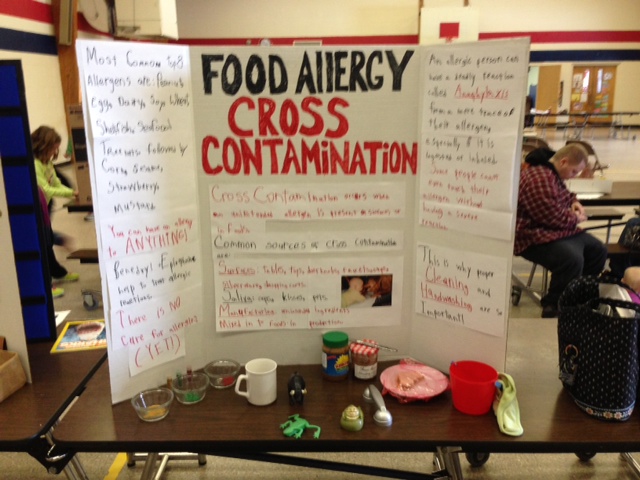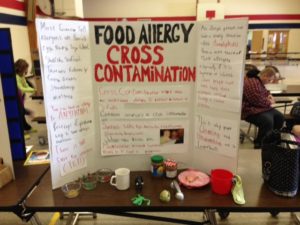Top Tips from Experts to Avoid Food Allergen Cross-Contamination

 If you have food allergies, it’s crucial that you avoid cross-contamination. Whether you’re allergic to peanuts, wheat, or another product, these tips will help you stay healthy and avoid trips to the hospital.
If you have food allergies, it’s crucial that you avoid cross-contamination. Whether you’re allergic to peanuts, wheat, or another product, these tips will help you stay healthy and avoid trips to the hospital.
Cross-contamination is especially dangerous if you have severe food allergies.
Follow these techniques to avoid eating anything that may be contaminated with the food you’re allergic to:
1. Make your kitchen free from allergens.Depending on your food allergens, your family may or may not be able to eat the same things. It’s common for families to have different sensitivities to the same substances.
- It helps to keep the entire kitchen free from the specific foods that cause your allergies.
- Even if one of your family members isn’t allergic to that item, they can contaminate surfaces that you come into contact with when they eat it in your house. It’s easy for a few crumbs to be carried all over the house.
2. Be careful with restaurants and fast food.Cross-contamination is a big issue in the food industry. A restaurant may claim they can make an allergen-free dish. However, it may still be contaminated by other items in the kitchen. Even if they have a separate space or utensils for these purposes, you run the risk of cross-contamination in your meals.
- For example, a chef may use the same knife to prepare all the food. A waiter may touch the dishes and cross-contaminate them. Food preparers may use the same gloves to make multiple dishes. Cross-contamination is a real threat when you’re eating out, so you may want to avoid it.
3. Read labels carefully. Even if you’ve bought the item before, it’s important to check the label each time. Brands and manufacturers frequently update their ingredient lists and change recipes.
- Possible cross-contamination may be listed on the new label. Food manufacturers are required to note on the label if there is a risk of contamination with the top allergens such as wheat, eggs, dairy, and others.
4. Ask questions. If there’s any doubt about what might be in your food, it’s important to speak up and find out if any of your allergen could be present.
- When it comes to food allergies, politeness needs to take a back seat. It may seem impolite to question a host or waiter about the ingredients in a dish. However, the consequences of cross-contamination can be devastating.
- Find out what ingredients are in each dish and ask about shared kitchen space and utensils. Many people don’t realize that cross-contamination can occur on several levels.
- Consider telling your dinner companions about your food allergies in case they need to rush you to a hospital or use an epinephrine pen.
- Questions are the key to knowing more about your food and keeping yourself safe.
Cross-contamination may have serious consequences if you have food allergies. Take the necessary precautions to ensure that your allergen doesn’t end up in your meal. Then, you can eat heartily and enjoy!
CLICK HERE to Explore Our Free Online Courses


Responses